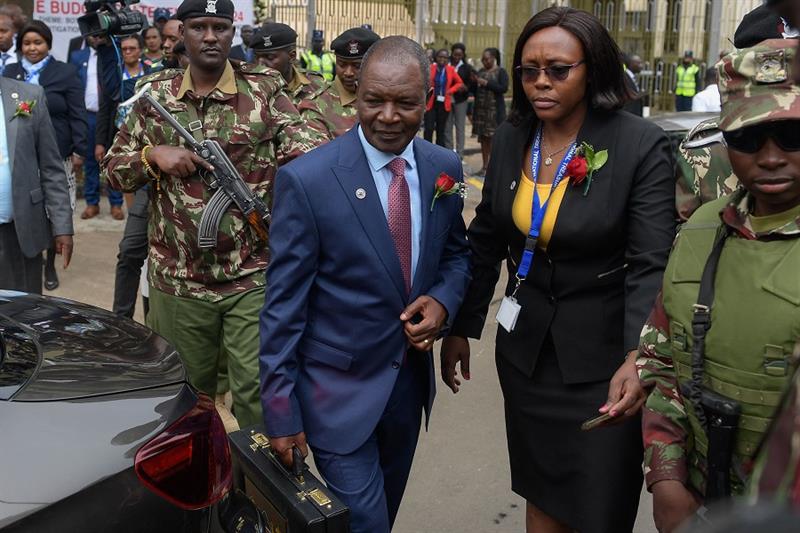
The European Union and Kenya are set to announce a trade deal on Monday, EU officials said, in a coup for Brussels as it seeks deeper economic ties with Africa.

Negotiations for the agreement are due to formally conclude at a ceremony in Nairobi attended by President William Ruto, his Trade Minister Moses Kuria, and EU Trade Commissioner Valdis Dombrovskis.
Once entered into force, the Economic Partnership Agreement (EPA) will give Kenya tariff-free access to the EU, its biggest market where it sends roughly one-fifth of all its exports.
These are mainly agricultural products such as the country’s famous tea and coffee, and 70 percent of its flowers.
Kenya will gradually open its markets but exclude a range of sensitive products, said Dombrovskis, who said it was a “momentous day” for the two countries.
“This puts us firmly on a path towards a privileged relationship, based on trust, rules and mutual opportunity,” he told reporters on Sunday, ahead of the formal announcement.
He said EU companies had invested 1 billion euros ($1.1 billion) in Kenya in the past decade but there was considerable “appetite” in doing more business.
“With this Economic Partnership Agreement in place, we have also the right platform to do so.”
It is the first broad trade deal between the EU and an African nation since 2016 and follows a spending spree by China on lavish infrastructure projects across the continent.
The EU has taken steps to counter China’s Belt and Road program, announcing in February it would increase investments in Kenya by hundreds of millions of dollars through its own Global Gateway initiative.
Kenya is seen by the international community as a reliable and stable democracy in a turbulent region and Dombrovskis said the east African powerhouse was a “trusted and valuable partner for the EU”.
He said Africa was a “priority region” for the EU and he hoped the Kenya deal would resonate elsewhere on the continent.
“Certainly, we think it’s going to be a boost,” he said of its impact on future trade linkages with Africa.
The agreement remains open for other members of the East African Community (EAC) to join, he added.
In 2014 the EU and the EAC — then Kenya, Rwanda, Uganda, Burundi and Tanzania — reached a trade deal but only Nairobi ended up ratifying it.
Kenya went its own way but Dombrovskis said the EU remains “fully committed to deeper economic integration” in the EAC, which now includes South Sudan and the Democratic Republic of Congo.